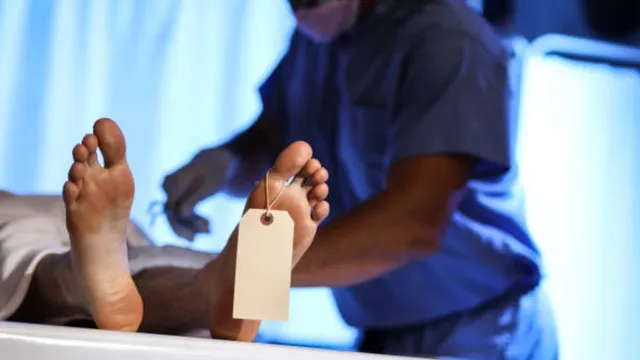- By Supratik Das
- Sat, 02 Aug 2025 11:26 AM (IST)
- Source:JND
In a groundbreaking step toward pushing the boundaries of life and death, Berlin startup Tomorrow Bio is providing full-body cryopreservation facilities for USD 200,000 (around Rs 1.74 crore), with a view to bringing back humans in the future. The sci-fi process is to store a human body at cryogenic temperatures shortly after legal death with the expectation that future advances in medicine may be able to reverse death. While the science of cryonics is still unproven, interest in the technology is accelerating quickly. Tomorrow Bio boasts that more than 650 individuals have already joined, having faith in science and a second chance on life.
What Is Cryopreservation?
Cryopreservation is a procedure that is used to cool the human body rapidly at ultra-low temperatures (approximately -196°C) shortly after death. This process is used to stop all biological functions and avoid cellular breakdown. The procedure substitutes the natural fluids of the body with a cryoprotectant solution — a chemical substance that inhibits the growth of ice crystals that would otherwise cause damage to tissues and organs. The resulting preserved body is stored in vacuum-insulated steel dewars filled with liquid nitrogen at a special facility in Rafz, Switzerland. "After you pass below zero degrees, you do not freeze the body; you cryopreserve it. Otherwise, you will have ice crystals throughout, and the tissue will get destroyed," explained Emil Kendziorra, one of the founders of Tomorrow Bio and a former cancer researcher, in a statement to the BBC.
Tomorrow Bio has a 24/7 standby operation. Once a client has been legally pronounced dead, a cryo-ambulance is sent retrofitted for the task. Along the way, personnel initiate chest compressions, oxygen, and start the cooling protocol. The corpse is then infused with a cryoprotectant agent, and frozen quickly to -125°C, then slowly cooled down to -196°C. The cryopreserved corpse is then shipped to Switzerland for long-term storage.
Is Cryonics Actually Possible?
As exciting as the idea sounds, no human has ever been brought back from a state of cryopreservation. Scientists are not convinced about its possibility either. Professor Clive Coen of King's College London, a neuroscience expert, refers to the idea of reviving individuals after cryopreservation as "preposterous". He explained to the BBC that "there is currently no proof that organisms with brain structures as complex as humans can successfully be restored." He went on to say that the process shows "a misplaced faith in antifreeze and a misunderstanding of the nature of biology, physics, and death." Coen also cautioned that as soon as the body is thawed out again, it will start decomposing once more, negating the preservation work.
Partisans of cryonics refer to occasional instances like Anna Bagenholm, a Norwegian woman who recovered after two hours of clinical death in cold weather, as evidence of principle. Others refer to successful organ cryopreservation in mice as cause for hope. In 2023, scientists at the University of Minnesota cryopreserved rat kidneys for 100 days and then successfully revived and transplanted them. But such results don't yet extend to human physiology and consciousness.
A Chance At Immortality?
The service, as expensive as a yacht or luxury vehicle, has been questioned regarding affordability and morality. The majority of Tomorrow Bio's patients are younger than 60, and several pay for their cryonics arrangements through life insurance policies. There's a huge number of individuals who purchase their second superyacht at the age of 85, with only a few years to live. With that, $200,000 for the chance to live again doesn't seem like such a bad bargain," Kendziorra said to the BBC. Part of the clientele sees the concept as "time travel," not fantasy. Louise Harrison, a 51-year-old client, reports that she was attracted by the intrigue of potentially glimpsing the future. "A small possibility of returning versus no possibility at all made sense," she remarked.
ALSO READ: Did You Know? These Countries Are Creating Millionaires Faster Than US And India
Tomorrow Bio partners with the non-profit European Biostasis Foundation, which keeps the specimens in long-term storage. Critics, though, wonder what legal or family obligations would be like hundreds of years from now if one were actually revived. Although cryonics is fascinating, it remains unproven scientifically. Even if there were successful revival, there would be issues regarding mental operation, personality integrity, and integration into society.

